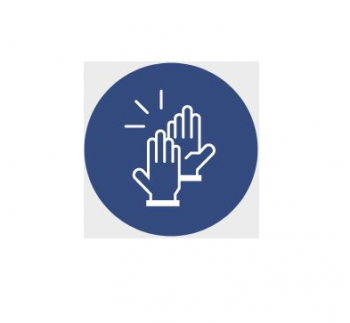A patient waiting to have the results of their echocardiogram read by a cardiologist hopes it will be done in a timely manner. Yet historically, cardiologists have had to be physically present in the Echo Lab in order to read the report accurately. When an echo report is needed to be read after hours and on the weekends, the cardiologist has to come in. In mid-2019, Cardiologist and section echo section head Dr. Karan Shetty, Dr. Daisy Dulay and other colleagues focused their efforts on arranging a remote access solution to reading patients’ echocardiograms. They faced several challenges. Cardiac ultrasound is like watching a movie and requires adequate infrastructure for allow for an accurate reading from a remote location. Patient privacy and confidentiality need to be protected. And as the only female echo reader, Dr. Dulay had specific safety concerns around coming into the Echo Lab at night as it is located in a more remote location of the building.
Then COVID happened, and it became even more important to enable physicians to read test results from their own homes when needed. One of the three echo reading rooms was also converted to administrative offices, making it challenging for all the echo readers to respect physical distancing while working in the lab.
The group worked closely with colleagues at Island Health including Cliff Quinn, Technology System Support from Heart Health; Ryan Davis, Manager of Heart Health; John Harper, Project Director of the CTO; Amanda Desforge, EDS and Echo Manager. After several different options were tried, the group eventually arrived at a workable solution whereby echo readers could access a diagnostic version of the software on a VIHA desktop to provide reports from home in a timely manner.
Speaking about the value of this initiative, Dr. Dulay said “It’s been great to have this capability to do this work from home, especially when we’re asked by colleagues after hours to review echos. We can quickly help our colleagues manage the patients with active cardiac issues, and let them know if further testing is required”.

